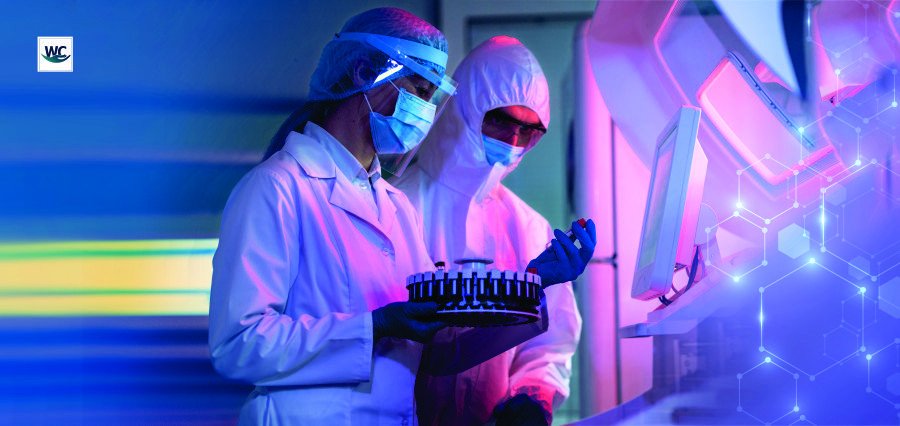- December 18, 2025

For decades, drug
discovery has posed major challenges in terms of both time and resources.From the lab bench to the pharmacy shelf, it might
take more than a decade and cost billions of dollars. However, despite all the
money spent, many potential therapies never make it to patients. Artificial
intelligence, however, is fundamentally changing this. AI's capacity to
evaluate vast amounts of data, identify patterns, and forecast outcomes is
creating a new realm of speed, accuracy, and potential in pharmaceutical
research.
From Guesswork to
Algorithms
Traditional drug
discovery is trial and error. Researchers painstakingly study diseases,
identify possible biological targets, and screen thousands of compounds, hoping
to find one that works. AI is reversing this process. With machine learning and
data analysis, researchers are now able to screen entire biological systems,
rapidly identify promising targets, and recommend the best compounds with
breathtaking speed.
For example, AI
software can sift through genetic information to identify the proteins with the
greatest potential to affect a disease. This disposes of decades of guesswork
and permits the scientists to work on the most promising candidates only. The
outcome is a more streamlined and quicker path to creating effective
treatments.
The Rise of Virtual
Chemistry
The next step after identifying a target is to locate a molecule that
will attach to it and change its function. Deep learning and
generative AI can model the process of millions of molecules physically binding
to a target protein. It not only reduces physical experimentation, but it also
allows scientists to design entirely new molecules that would never have been
conceived before. It is especially useful when time is limited, as in global
health emergencies.
Changing Clinical
Trials
Clinical trials are
essential but notoriously inefficient. Finding suitable patients, ensuring
adherence, and collecting accurate data are just a few of the many hurdles. AI
is addressing these challenges by helping design smarter trials and selecting
patient populations more likely to benefit from a treatment.
Through an examination
of the health histories, demographics, and even lifestyle data, AI can predict
which populations will be open to a new drug. This not only maximizes the
chances of a successful trial but also enables patients to be treated with
drugs tailored to their very own individual profiles. AI software can track
real-time information from wearable devices, offering more sophisticated
information on patient outcomes and side effects.
Saving Time, Saving
Lives
One of the most
impactful strengths of AI in drug discovery is speed. For COVID-19, AI played a
significant role in the identification of candidate antiviral molecules,
ongoing drug repurposing, and assistance in vaccine development. What was done
in months or years was done in weeks.
Outside of emergencies,
this speed can help rare diseases and conditions that have been neglected in
the past because they are not commercially attractive. By reducing costs and
timelines, AI allows small biotechs and researchers to aim at treatments that
were previously not economically viable.
Challenges Ahead on the
Road
While applying AI to drug research has advantages, there are drawbacks
as well. Data quality is one of them.
Regulatory hurdlesneed
to be considered as well. Use of AI in the development of drugs needs to comply
with strict safety and efficacy standards, and institutions like the FDA and
the EMA are developing guidelines to evaluate AI-driven tools. Transparency and
trust play a special role, especially when human lives are involved.
Collaboration is the
Key
For AI to live up to
its drug discovery potential, tech firms, pharma, research organizations, and
regulators must collaborate. One company alone cannot bring it about. Open data
exchange, collaborations, and joint ventures will get AI tools smarter,
validated, and scaled safely.
Educational courses will
also be required. As AI continues to develop, education for the next generation
of scientists with competency in both biomedical science and machine learning
will be necessary.
Looking to the Future
AI is not meant to substitute for scientists but to help them. By automating mundane tasks and developing deeper insight, AI allows scientists to focus on interpretation, imagination, and clinical application. The marriage of technology and biology is ushering in an age when drug development is more efficient, safer, and faster.
About the Author
Kevin Smith
Kevin Smith is a Managing Editor at World Care Magazine.